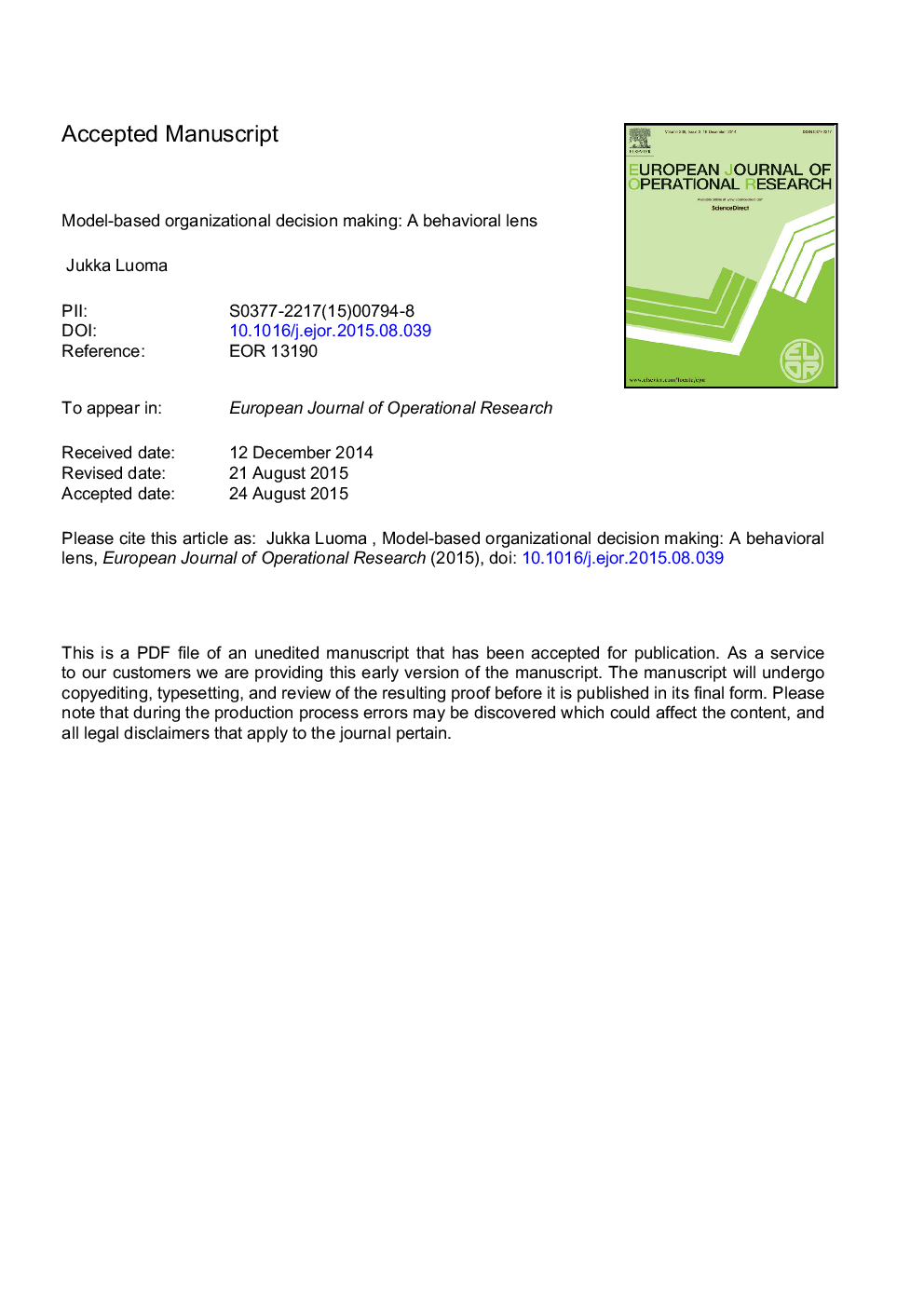| Article ID | Journal | Published Year | Pages | File Type |
|---|---|---|---|---|
| 6895988 | European Journal of Operational Research | 2016 | 36 Pages |
Abstract
Operational research assumes that organizational decision-making processes can be improved by making them more rigorous and analytical through the application of quantitative and qualitative modeling. However, we have only a limited understanding of how modeling actually affects organizational decision-making behavior, positively or negatively. Drawing from the Carnegie School's tradition of organizational research, this paper identifies two types of organizational decision-making activities where modeling can be applied: routine decision making and problem solving. These two types of decision-making activities have very different implications for model-based decision support, both in terms of the positive and negative behavioral impacts associated with modeling as well as the criteria used to evaluate models and modeling practices. Overall, the paper offers novel insights that help understand why modeling activities are successful (or not), explains why practitioners adopt some approaches more readily than others and points to new opportunities for empirical research and method development.
Keywords
Related Topics
Physical Sciences and Engineering
Computer Science
Computer Science (General)
Authors
Jukka Luoma,
